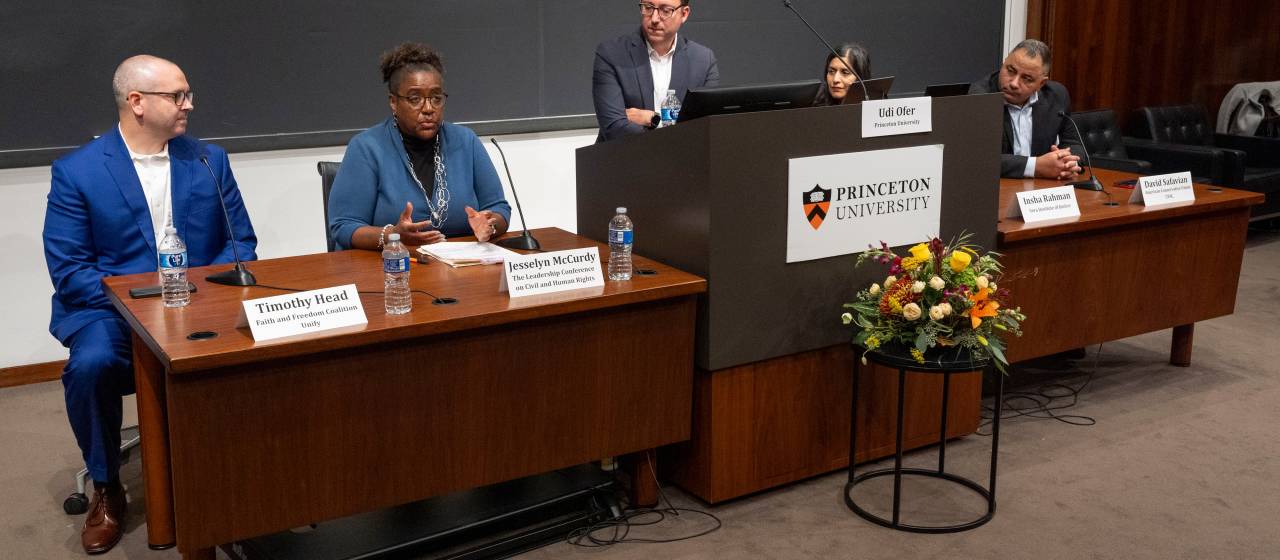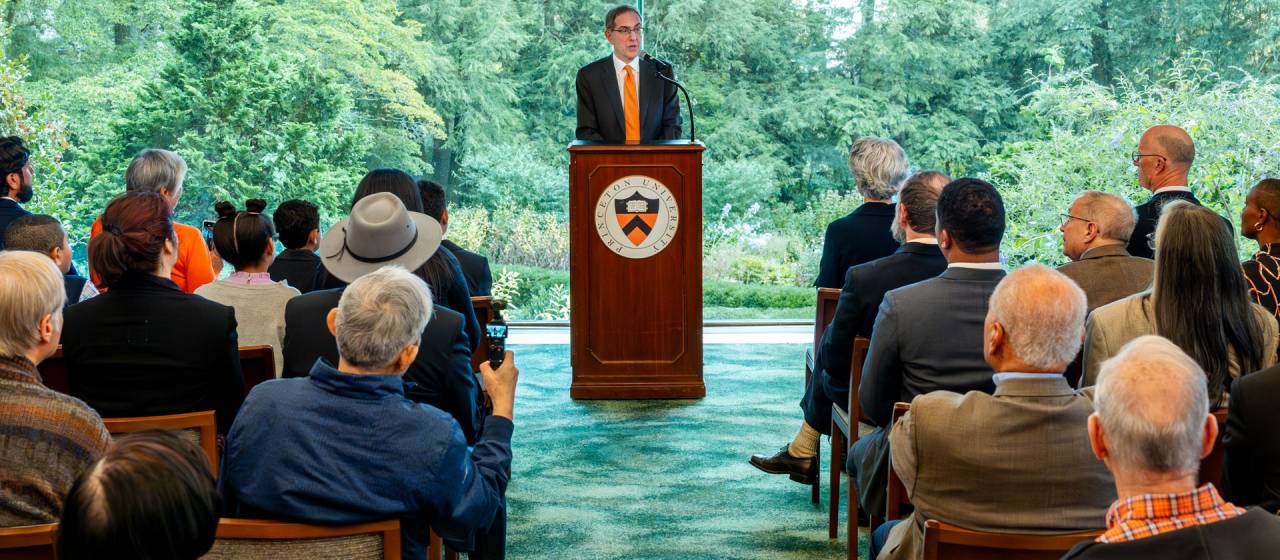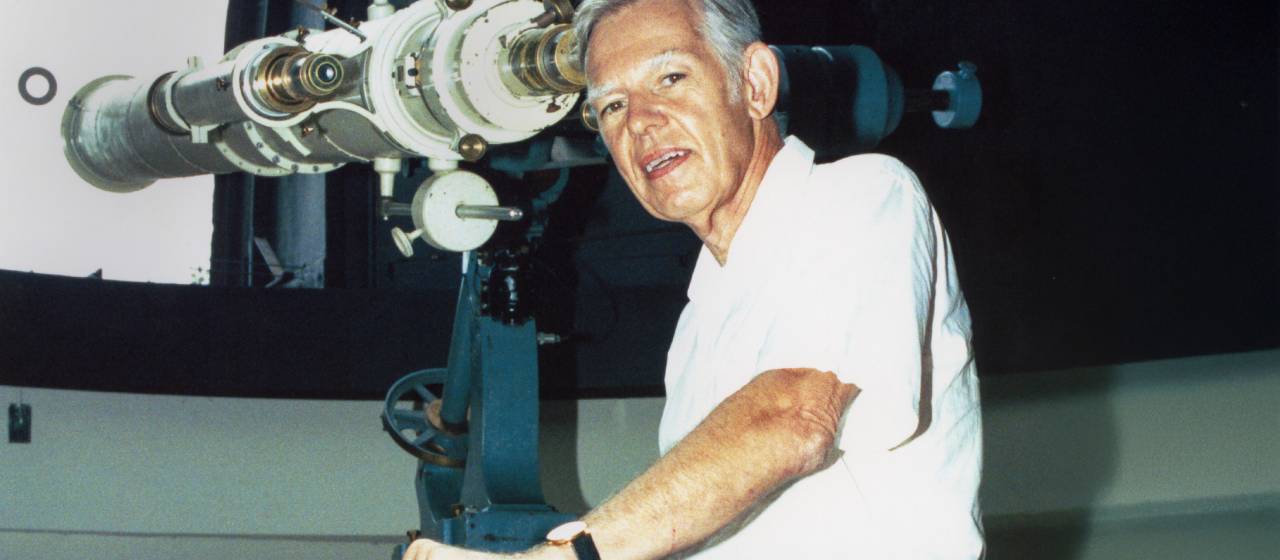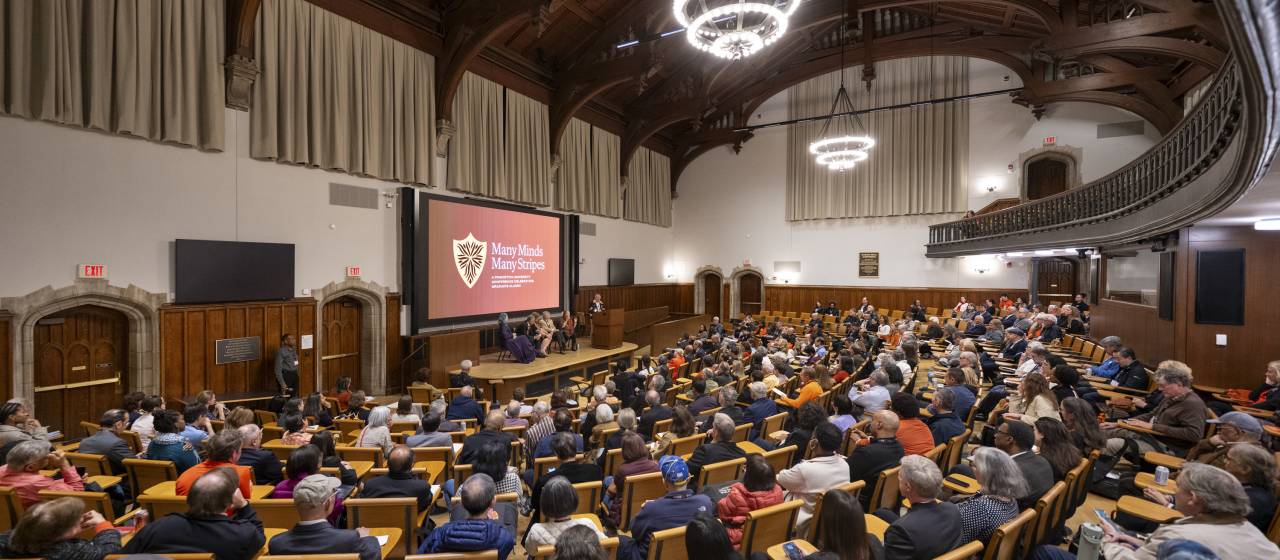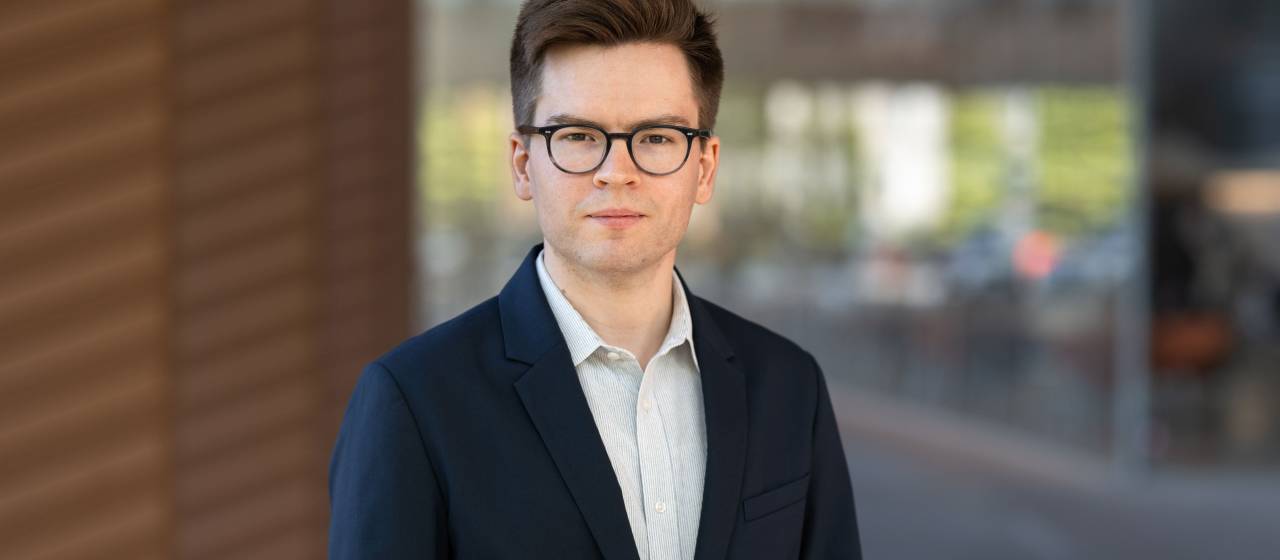Princeton's Udi Ofer is choreographing a rare consensus across partisan lines
The week after Commencement this spring, Princeton SPIA professor Udi Ofer unobtrusively accomplished a feat of across-the-aisle magic, bringing hard-right and hard-left factions together to approve a shared set of principles for criminal justice reform in America.
Signatories to the breakthrough agreement include the Conservative Political Action Conference (CPAC) and the American Civil Liberties Union (ACLU), along with a dozen others.
Political leaders voicing support for the effort include Republican Gov. Kelly Armstrong of North Dakota and Democratic Sen. Cory Booker of New Jersey.
Members of the 14 groups who hammered out the core principles — safety, fairness, dignity and accountability — are now laying plans to convene at Princeton this academic year to flesh out policy proposals.
“Once you go beyond the rhetoric, you realize that there's actually a lot of agreement, particularly among people who are the behind-the-scenes workers who make policymaking happen in America,” Ofer said.
“I’ve been in the trenches with many of these organizations for years, and it's been such a tremendous honor to be able to now bring them to Princeton to try to lay the seeds for the next generation of innovations on justice and safety.”
In addition to the ACLU and CPAC, signatories to the principles include the American Legislative Exchange Council, the Vera Institute of Justice, the Faith and Freedom Coalition, the Leadership Conference on Civil and Human Rights, the Prison Fellowship, the Center for American Progress, Right on Crime, JustLeadershipUSA, Dream.Org, Stand Together, Unify.US, and the Alliance for Safety and Justice.
The Council on Criminal Justice and The Just Trust played leading roles along with Ofer and Princeton SPIA in bringing the players together.
The core principles announced in May lay out the signatories’ common ground succinctly: “Our organizations represent perspectives from across the ideological spectrum and vehemently oppose each other on many policy issues, but we agree that the criminal justice system is too big, costs too much and fails to deliver the safety and justice Americans deserve.”
Weaving two strands of policy history

Udi Ofer
Ofer, who is the John L. Weinberg/Goldman Sachs and Co. Visiting Professor and a lecturer at Princeton SPIA, came to the University’s policy school after two decades at the ACLU.
The long and fascinating “parallel growth” in support of criminal justice reform on both sides of the aisle is rooted in the values of the Civil Rights movement on the liberal side and reaches back to Watergate on the conservative side, he said, with resonance across the aisle.
“Whether you live in red America, blue America or purple America, you have a personal experience, or you know someone who’s very close to you has had a personal experience,” Ofer said. “It’s not just this abstract issue, but it’s one that’s real.”
The conservative push for reform started after Watergate, he said, when Chuck Colson, former special counsel to President Richard Nixon, served his sentence and founded the Prison Fellowship based on Christian values of second chances. Others on the right see the issue as a matter of fiscal responsibility and government overreach, Ofer said.
Progressives tend to see mass incarceration as an outgrowth of root causes like racism and disparities driven by socioeconomic status, he said, as well as inequities perpetuated by overly punitive laws like the Anti-Drug Abuse Act of 1986 that established the 100-to-1 sentencing disparity between crack and powder cocaine.
“The way they describe the problem is different,” Ofer said. “But when you think about the solutions, there's a lot of commonalities.”
These paths overlapped in a series of major legislative accomplishments from 2010 to 2020, during which the U.S. incarceration rate dropped by more than 30 percent as Democrats and Republicans joined forces on the Second Chance Act of 2008, the Fair Sentencing Act of 2010 and the First Step Act of 2018, signed into law by Presidents George W. Bush, Barack Obama and Donald Trump, respectively. In the states, dozens of reforms passed during this period, including in high incarceration states like Louisiana and Oklahoma.
While the issue has faced backlash, Ofer said, bipartisan reforms to end sentencing disparities, reduce barriers to re-entering society and prioritize rehabilitation over punishment are currently active in dozens of states, from Connecticut to Oklahoma.

In April, the SPIA DC Center hosted U.S. Secretary of Veterans Affairs Doug Collins (at left, in conversation with Ofer) for a Second Chance Month event. Collins was a cosponsor of the First Step Act while serving as a Georgia congressman.
Stepping stones to bipartisan dialogue
When Ofer started full-time at the University three years ago, he used his connections in conservative and progressive spaces as a stepping stone to a bipartisan dialogue, with Princeton as its facilitator.
Key supporters of this effort at Princeton included SPIA Dean Amaney Jamal and Patrick Sharkey, the William S. Tod Professor of Sociology and Public Affairs, as well as programs like the Princeton Policy Advocacy Clinic, the James Madison Program in American Ideals and Institutions, and the Princeton Program in Law and Public Policy. Over the past year, the project has held panels on campus, at the Princeton SPIA DC Center in Washington, D.C. and online.
“Bringing together thought leaders and policymakers representing a wide variety of perspectives for sustained, respectful conversation is the best way to find common ground, always,” Princeton SPIA Dean Jamal said at a panel during the group’s first convening on campus last November.
A follow-up event in April at the SPIA DC Center celebrated Second Chance Month, an annual observation introduced by President Trump in March 2018.
U.S. Secretary of Veterans Affairs Doug Collins, who had cosponsored the First Step Act while serving as a Georgia congressman, told the gathering that much of the real work of bipartisanship often happens away from legislative sessions and television cameras.
“That quiet collaboration is no less effective than the more visible conversations lawmakers and policymakers have in the public eye,” he said. The act passed by overwhelming margins — 87 to 12 in the Senate and 358 to 36 in the House.
An online meeting this May to announce the core principles attracted more than 500 participants. Having championed bipartisan reform together at the federal level, Gov. Armstrong and Sen. Booker gave remarks commemorating the new milestone.
The virtual event drew over 550 attendees and featured a panel discussion with Ofer, ACLU deputy legal director Yasmin Cader, CPAC criminal justice policy adviser David Safavian and representatives from the Council on Criminal Justice and The Just Trust.
“Bipartisanship doesn't mean we're locking arms and focusing on just the things that we have purely in common and agree on,” Safavian said. “It means that we're coming to solutions that achieve everybody's goals without giving away core principles.”
Cader recalled how one of the conservative signatories had suggested early on that they start with a principle of dignity. This "shared belief in humanity," she said, was key to recognizing "that we in that room collectively cared about a much greater swath of people than we thought we did."
Tom Durso of SPIA contributed to this story.



